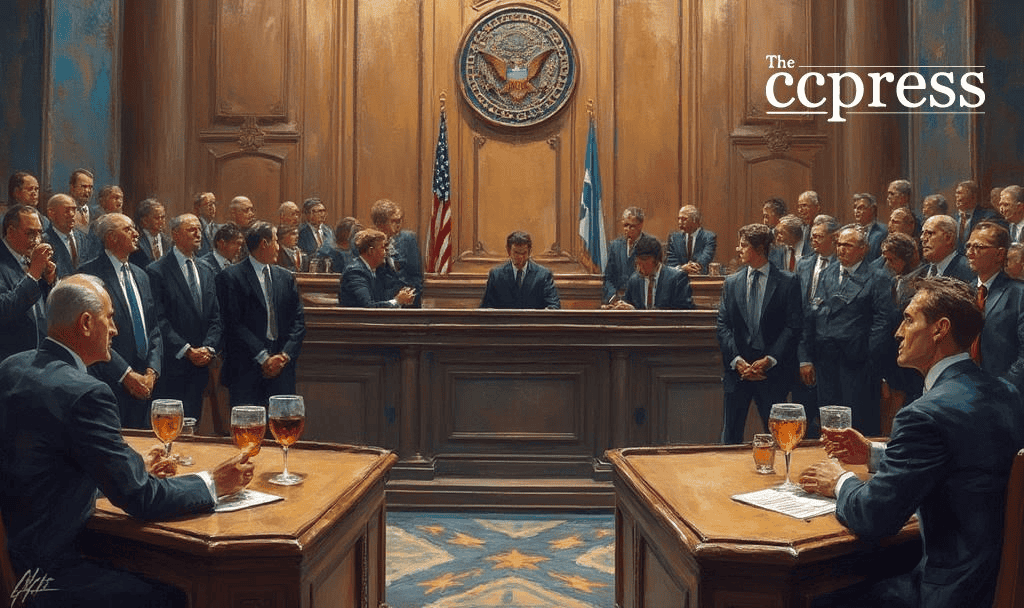- Ripple advocates for clearer SEC and CFTC roles in new bill.
- XRP, ETH, SOL at regulatory risk without revisions.
- Legal confusion may impact U.S. crypto market structure.

Ripple has formally responded to the U.S. Senate on the Crypto Market Structure Bill, advocating for clearer regulatory boundaries and cautioning against extensive SEC oversight on tokens like XRP, ETH, and SOL.
Ripple’s response highlights significant regulatory concerns, emphasizing potential impacts on major digital assets and urging a reevaluation of legal frameworks to foster innovation without stifling it.
Ripple has addressed the Senate on the new Crypto Market Structure Bill, advocating for clearer regulatory boundaries. This response aims to prevent excessive SEC oversight of tokens like XRP. Ripple’s intervention holds broad implications for the digital asset landscape.
Stuart Alderoty, Ripple’s Chief Legal Officer, is the leading voice on this subject. Ripple cautions that the bill’s current form could subject tokens to indefinite oversight, urging a transition period for these assets to achieve decentralization.
The bill’s potential impact extends to global markets, possibly affecting investment trends. Ripple warns of the risk of chilling innovation and deterring investment if ambiguous regulatory oversight persists. Such outcomes are undesirable for both U.S. and international stakeholders.
Ripple’s position raises significant business implications, emphasizing the importance of federal preemption in regulatory frameworks over state-by-state governance. The organization’s feedback leverages its extensive regulatory history and legal engagements with entities like the SEC. Ripple’s stance is bolstered by Stuart Alderoty’s statement:
“We appreciate the Senate Banking Committee’s invitation to provide input… our unique perspective stems from over a decade working with global regulators and… our extensive engagement with the SEC,” – source
Ripple’s advocacy for a five-year safe harbor period aims to allow token networks to mature and decentralize. The company’s focus remains on fostering a more predictable legal environment, which could stabilize the regulatory outlook for the crypto industry.
This regulatory debate follows historical precedents, including previous litigation involving Ripple and XRP classification. These events underscore the ongoing discussions about token classification and emphasize the need for clear legal standards to support market growth.
| Disclaimer: The content on The CCPress is provided for informational purposes only and should not be considered financial or investment advice. Cryptocurrency investments carry inherent risks. Please consult a qualified financial advisor before making any investment decisions. |

